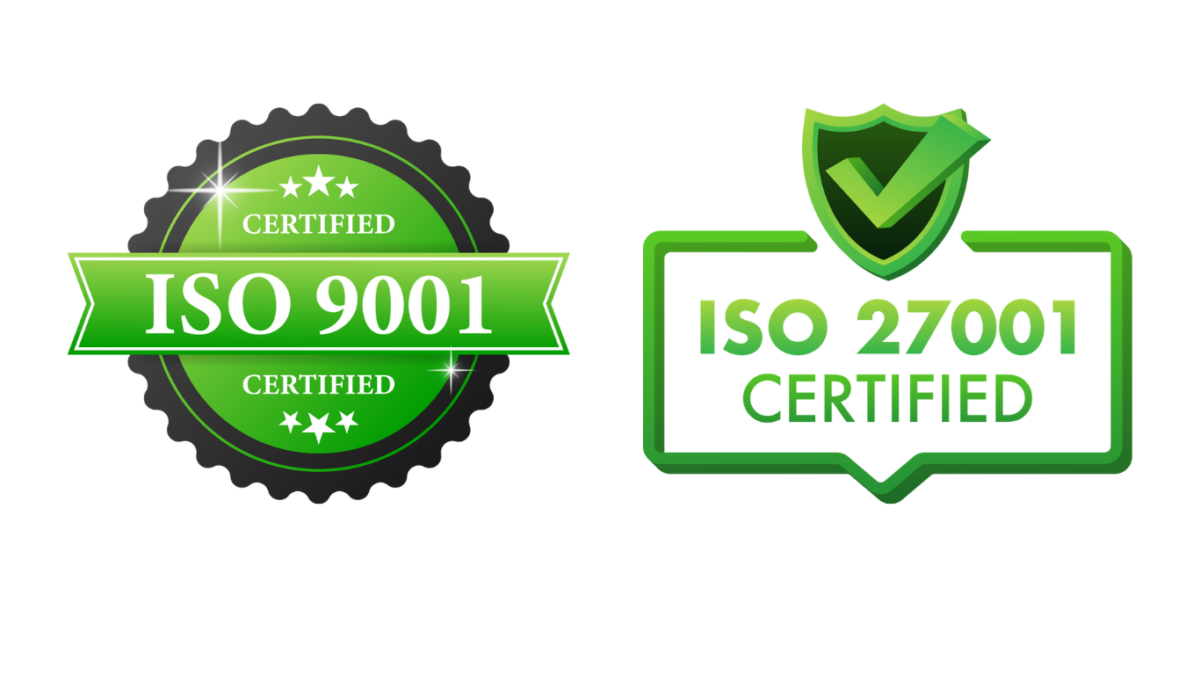16 Steps Recommended Ascertaining the Success of ERP Implementation in your Organization
The implementation of the ERP in an organization is a massive step towards achieving the organizational objectives with a systematic and careful approach. It is a major change that ensures better success rate by involving various components of business and integrating them with the help of software.
These business components include human resource management, sales, and marketing management, production management, logistics, payroll, accounting, management control and many more.
Enterprise Resource planning helps all the organization across the globe irrespective of their size and line of business. It creates a global foundation and provides excellent outputs with increased productivity and reduced expenses.
If you want to implement Oracle ERP cloud in your business, then you need to consider about the several factors to ascertain that ERP implementation in your organization is successful and your business is benefited from it immensely.
Since ERP accelerates various business processes and streamlines them, it is critical to design effective ERP strategies for the constant delivery of positive business output.
Here, we are offering you 16 effective steps, and by incorporating them into your ERP strategies, you can ensure that the ERP implementation in your company is fruitful
1. Setting of Objectives
Before you start, it is imperative to identify your problem areas. Ask yourself questions to find the real goal of ERP implementation. It needs to be done keeping future endeavors also in mind rather than thinking about current projects only.
Now the important question is why ERP implementation in your organization? How good is it for your business and its operations? And what strategies need to be built for the successful implementation of ERP.
ERP implementation is crucial for any organization that wants to grow. ERP implementation offers better visibility and communication between different business processes and operations. It also ensures that the information is centralized for any respective department of the business to access. Various modules and their operations are managed over a unique database system.
However, it is also crucial to think about the software tools that are already in place and that migration to ERP might need strategizing and budgeting. In fact, time management and cost-effectiveness is the key to the success of implementation if every critical phase is handled by subsequent and well-planned steps.
So, before you plan to implement ERP in your system, do a self-assessment and come up with correct answers to ensure that this is the right decision for your business.
2. Anticipating Risks
There are innumerable risks involved in the implementation of ERP. Whether overhead costs or delivery delays, failure in infrastructure or vendor issues, it is critical to be prepared for these risks in advance. The management should be able to anticipate the major risks involved in the process. That is the reason it is important to define the objectives of the ERP implementation.
It is equally important to train the staff for the upcoming changes as ERP implementation is extremely influential and everyone should contribute towards achieving the favorable results.
3. Selecting the Suitable ERP System
The need for ERP varies from one industry to another in terms of performance. It is essential to look for an ERP package that is built as per your industry standards. For example, if you go for Oracle ERP Cloud, it offers an extensive array of applications that enable the management to get improved performance with better decision making and in reduced expenses.
Similarly, many ERP providers including Sage, SAP, Microsoft Dynamics, etc. render their clients with segmented ERP solutions. Some of them even design ERP specific to business sectors and position them accordingly.
The ERP is packaged to minimize the cost of ERP development and deployment. And the features provided in every package fulfill the requirements of all the SMEs.
The standard features of every package offered by the ERP providers make sure that the commercial aspect of your business is managed well. It also controls your logistics, handles the administrative and financial part, monitors the production, manages accounts, etc.
If you want to add more sophisticated tools as per your industry standards, then implementation takes longer than expected. And training is involved in every package as essential part along with data and file transfers. Hence, if you find a suitable Oracle implementation partner, the procedure becomes much easier for you.
4. Finding the Suitable ERP Providers
You need a vendor that understands your business needs and processes and offers you a comprehensive solution for your system. It is best to establish specification so that you are clear about what kind of planning and provisioning is required.
Ascertain that your provider has an excellent reputation in the market and is known for timely deliveries. Ensure that the business suite offered by your provider consists of a portfolio of industry-focused solutions, integrated business processes, and rapid value solutions
5. Defining the Scope of ERP
All the businesses offer some unique products and services and run on specific rules. Likewise, every business faces problems while growing. With the boost in the growth of any company, the various metrics such as sales, procurement, etc. become difficult to manage. Hence, ERP implementation comes into account and help in maintaining data enterprise-wide, reducing the manual efforts.
Similarly, irrespective of the size of business, its workflow plays a vital role. ERP improves the workflow of any business. It mainly covers all the aspects of your business and fulfills every business demand.
ERP also ensures that the higher levels of security are implemented in your system, and all the business operations run smoothly. It makes the data centralized, and only authorized employees can access this data.
Therefore, keeping in mind the core business requirements and financial investments, the scope of ERP is defined for the smooth and obstacle-free ERP implementation.
6. Evaluating the Current System to come up with Ideal Project Plan
It is one of the most crucial steps to ensure the successful implementation of ERP in your system. As per some reports, numerous firms customize their ERP software to lower degrees of the considered utilization.
The management of the organization is required to invest time and energy in evaluating the options available for optimal utilization of ERP. Because, otherwise the complexities may increase, if the evaluation is not done properly beforehand, leading to the failure of ERP implementation.
Evaluating your system is a stepping stone to understand the present needs and future projections. It is crucial to differentiate the customization and ERP configuration before the implementation starts. ERP needs to be flexible to accommodate the requirements going to arise in future.
7. Transferring the Knowledge
Once you decide to go for ERP implementation, it is essential to designate some employees that will provide assistance during the implementation process. These people should have knowledge of company’s history and culture as these are the representatives of their respective departments and introduce the ERP service provider with various systems along with internal users.
Usually, business owner, chief financial officer, chief technical officers and other decision makers are included in stake-holders along with several other representatives. Additionally, your provider also renders your team with required assistance and pieces of training needed for the implementation process.
8. Selecting Implementation Phases
ERP implementation is different for every organization. Choosing the modules that your business requires is a difficult task. This is when mapping of your business processes comes into play. It is a crucial step to know that what are the processes in place and what is their importance.
For a successful ERP implementation, it is essential to have the workflow ready and make changes or customize according to these business workflows.
It is suggested that the implementation project should be divided into independent phases. You can either select complete service approach or guided approach, depending upon your organization’s size and business requirement.
9. Creating Achievable Schedules for Timely Delivery
If the delivery of the ERP implementation is not timely, even with one year delay, it will not be called a success irrespective of the quality of the project and cost savings. Most of ERP implementations take longer than the expected time of delivery.
Hence, it becomes necessary to schedule the primary processes deliveries to be achieved on the timely basis. Make these flexible to accommodate final adjustments. This can happen when you define the project in independent phases and give them the estimated time limit to finish.
10. Migrating to ERP
Once you have established which ERP solution you need, then the major and the most critical step is data migration. It should be a trouble-free transition for the future utilization of ERP.
ERP implementation can be a tremendous change for the company that has not used this software before. It is crucial to determine that which data to be migrated as the complete shifting of data may be a burdensome process.
Hence, it is recommended that only critical data should be transferred to the software and precautions should be taken to ascertain that the data is retrieved and can be accessed whenever required.
11. Customizing
ERP is developed as per the requirement of your business and its respective industry. The significant amount of thought and research goes into this process. Since ERP implementation includes an enormous investment of capital, large pool of resources, lot of time and efforts, the company should be able to manage the scheduled maintenance of the ERP software.
At the time of pilot testing also, the management should evaluate the understanding of the utility of the system rather than the desired utility of the organization. It is critical to keep an eye on the system to be adopted by the management from the onset.
So if you want the successful implementation of ERP with necessary customizations, it is critical to follow the best practices. If ERP is fitted the way it was bought, this will do no good to your business. You must un-follow the old methods of ERP implementation and get the customization done as per your business processes and operations in the company.
That is why it is very important to understand your system, your business requirement, the software and the modifications that need to be made, prior to the customization.
12. Changing the Management
While employees of any organization are habitual of specific routine they follow for performing their activities through already defined processes, any changes in the system are not welcomed easily. However, with the implementation of ERP, change management becomes necessary.
ERP implementation has a significant impact on the working environment of any company. It is responsible for all the modification in working styles and affects all the processes and ongoing operations in the organization.
It is the responsibility of the management to prepare their staff for the changes by giving them training and making them aware of the positive impacts and efficiency of the software.
13. Transferring the Knowledge
Management should make sure that the vendor renders the in-house IT team with all the technical know-how and detailing of the project. Proper technical training and effective transfer of knowledge are considered critical for the success of the project.
For operations to be smooth and simplified, the IT support staff should be well-trained. If the software utilization is not optimal, then the output of ERP implementation will not be effective.
14. Going Live
It is only after go-live that the actual operational obstructions come in picture. If there are gaps between evaluation, processes and implementation and the system is not flexible enough to handle them, it may backfire.
At this phase, the system needs to be improvised, and at the same time, the management should ensure that the primary objective of the implementation should not be diluted.
During go-live period, accurate data migration and proper hardware synchronization are evaluated.
15. System Testing
Testing is another crucial step that ensures that product is ready. Though it is a hectic task but it confirms that all the technical and functional aspects of the system are positive.
Below are the checklist points that are evaluated during testing:
- Business reports
- Access rights for individual users
- Both static as well as dynamic data
- Auto backup procedures
- User acceptance
- Accounting reports
16. Maintaining and Supporting
Once the ERP is live, it needs maintenance and support for the maximum output. If the implementation is successful, it does not ensure the optimal future utilization.
It is crucial to update the system on timely basis along with periodical maintenance and ongoing support. This will ensure the smooth and trouble-free functioning of the ERP solution to give you better ROI for your business.









